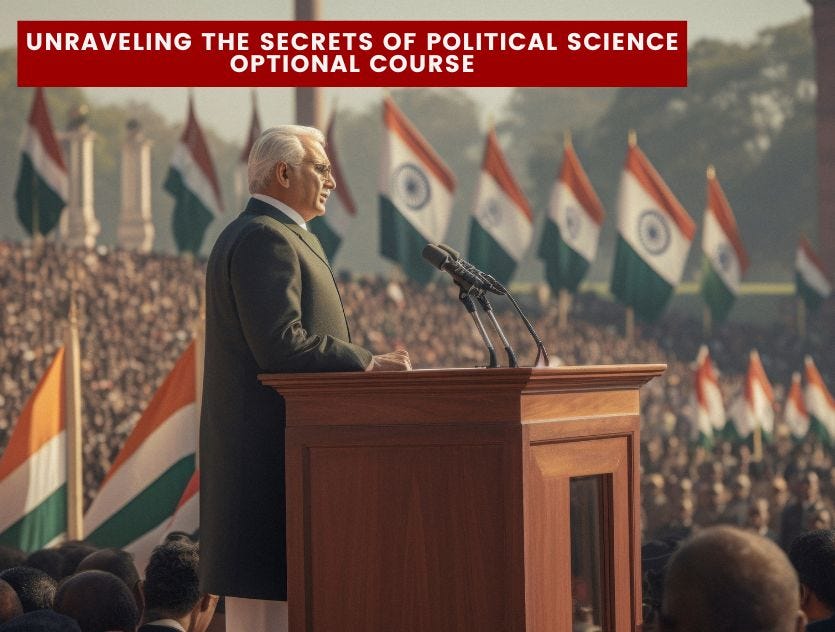Unraveling the Secrets of Political Science Optional Course
Political Science Optional Course is an intriguing and challenging topic of study. It goes deeply into the complex workings of governments, societies, and power relations, providing unique insights into how the world works. Understanding the principles of Political Science is critical, whether you're an aspiring politician, an inquisitive citizen, or a student ready to delve into the complexities of government.
The Significance of Political Science
Political science is an academic subject that examines political structures, actions, and behavior. It explores the philosophy and practice of politics, including power, authority, government, and democracy. Individuals who study Political Science get a better knowledge of the mechanisms that build societies and the dynamics driving political change.
Navigating the Curriculum
Beginning a journey into PSIR Optional Syllabus necessitates a firm foundation. A well-structured curriculum creates the framework for comprehensive learning by covering a wide range of subjects required for understanding the complexities of the profession.
Key Concepts in Political Science
State and Government: Understanding the difference between the state as a political entity & the government as its governing body is critical. This involves looking into other types of governance, such as democracy, monarchy, and dictatorship.
Political Ideologies: Delving into ideologies like liberalism, conservatism, socialism, and communism provides insights into diverse political beliefs and their impact on policymaking.
Political Institutions: Analyzing the responsibilities and activities of institutions such as the legislative, executive, and judiciary aids in understanding the mechanics of government.
International Relations: Examining the relations of nations, international organizations, and non-state entities provides insight into global politics and diplomatic affairs.
Methodologies in Political Science
Quantitative Analysis: Learning statistical techniques and data analysis methods equips students with tools for empirical research and policy evaluation.
Qualitative Research: Mastering qualitative methods such as interviews, case studies, and content analysis enables scholars to delve into nuanced aspects of political phenomena.
The Relevance of Political Science Education
Investing in Political Science study provides several personal and professional rewards.
Enhancing Critical Thinking Skills
Political Science education fosters critical thinking skills, enabling students to understand difficult situations, assess evidence, and generate well-reasoned judgments. This skill set is extremely useful in a variety of careers, including law, public policy, media, and academia.
Fostering Civic Engagement
Political science education prepares individuals to actively engage in the democratic process. Individuals who understand political processes and institutions may participate effectively in discussions, advocate for causes, and help to effect constructive society change.
Building Global Awareness
In an increasingly linked world, understanding global challenges is critical. Political science education teaches about international interactions, conflicts, and cooperation, encouraging global citizenship and empathy for different cultures and ideas.
Conclusion
Finally, Political Science acts as a light of information, revealing the complexity of governance and society. A fundamental grasp of Political Science Optional Course provides individuals with the tools they need to navigate the complexities of politics, make educated decisions, and influence good change in their communities and beyond. Whether you want to work in public service or simply become a more educated citizen, studying Political Science provides vital insights that transcend borders and generations.




